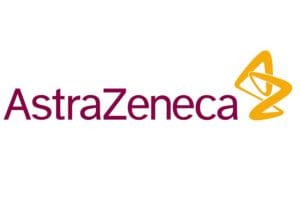 Cambridge, UK–based AstraZeneca (Nasdaq:AZN) has announced that the Committee for Medicinal Products for Human Use (CHMP) of the European Medicines Agency has recommended a new marketing authorization of Imfinzi (durvalumab).
Cambridge, UK–based AstraZeneca (Nasdaq:AZN) has announced that the Committee for Medicinal Products for Human Use (CHMP) of the European Medicines Agency has recommended a new marketing authorization of Imfinzi (durvalumab).
The recommendation specifically refers to the first-line treatment of adults with unresectable or metastatic biliary tract cancer (BTC) in combination with chemotherapy (gemcitabine with cisplatin).
In an interim analysis, durvalumab with chemotherapy was associated with a 20% reduction in the risk of death compared to chemotherapy as a monotherapy.
The TOPAZ-1 study found a 24% reduction in the risk of death compared to chemotherapy alone after an additional 6.5 months. In addition, the company estimates that twice as many patients of durvalumab and chemotherapy were alive at two years compared to those on chemotherapy alone.
AstraZeneca notes that durvalumab was generally well tolerated in the TOPAZ-1 study. A total of 60.9% of patients treated with Imfinzi and chemotherapy had Grade 3 or 4 treatment-related adverse events. In the chemotherapy-only arm, 63.5% of patients had Grade 3 or 4 adverse events.
“If approved, Imfinzi plus chemotherapy will provide patients with advanced biliary tract cancer the first opportunity for treatment with an immunotherapy-based combination,” said Susan Galbraith, executive vice president of oncology R&D of AstraZeneca, in a news release. “This innovative regimen has been shown to significantly prolong patients’ lives, and we look forward to bringing this option to those in the European Union as soon as possible.”
Durvalumab with chemotherapy is already approved in several regions for locally advanced or metastatic BTC, including the U.S., Canada, South Korea and Brazil.
In 2018, the EMA approved durvalumab as monotherapy for locally-advanced, unresectable non-small cell lung cancer (NSCLC) in adults with tumors expressing PD-L1 on at least 1% of tumor cells. That approval covered patients with cancer that had not progressed after platinum-based chemotherapy and radiation therapy (CRT).
AstraZeneca shares on the Nasdaq were mostly flat, hovering around $63.95.